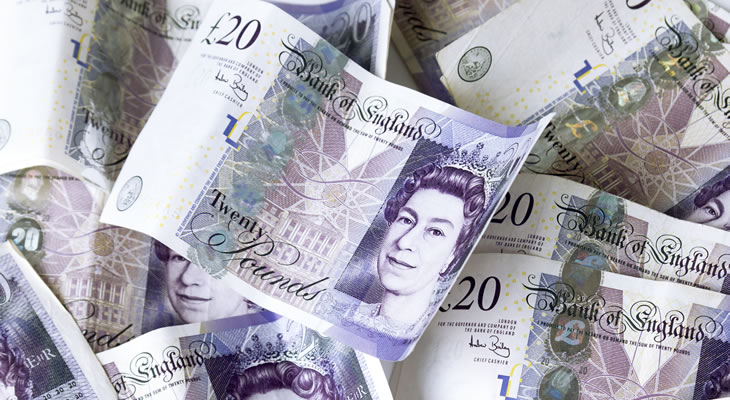- GBP-JPY exchange rate hits monthly low – Japanese Yen falls on inferior growth results
- Long-term ‘Brexit’-induced slowdown forecast – Coming UK data to have massive impact on Sterling
- Bank of Japan’s actions under scrutiny – Methods of devaluing JPY remain elusive
- Further BoE action may have limited impact – Questioning of central bank powers continues
The latest movements of the Pound Sterling to Japanese Yen (GBP/JPY) exchange rate have been plainly negative, with Sterling sliding down to 130.10, the lowest exchange rate for the pairing since the beginning of July.
The Yen has also been an uncertain prospect for investors, however, with recent national growth figures doing little to inspire confidence in the troubled Japanese economy.
Pound Japanese Yen Exchange Rate Dips on ‘Brexit’ Timing, Japan’s Growth Data Disappoints
Pound Sterling (GBP) exchange rates have followed last week’s pattern of exchange rate negativity, having opened trading on Monday in a solid state of decline against virtually all of its regular peers.
With no major UK domestic data out, the focus of economists has shifted to when Prime Minister Theresa May might trigger Article 50, as well as when the UK might ultimately leave the EU.
A recent article in the Sunday Times has focused on the latter of these questions, with an apparent government source stating that;
‘ [The Government doesn’t] have the infrastructure for the people they need to hire. They say they don’t even know the right questions to ask when they finally begin bargaining with Europe’.
In response to the statement, a Downing Street spokeswoman said;
‘The PM has set out the government’s position on Article 50 and has established a new department dedicated to taking forward the negotiations’.
For context, Prime Minister Theresa May clarified that she would not trigger Article 50 until 2017 at the earliest, though some see the provisional 2019 exit date as overly ambitious for such a lengthy and complicated procedure.
While the UK economy has clearly suffered lately, Japan has also posted concerning domestic data results, which have weakened the Yen against peers such as the Euro.
In this case, the news is growth based, with the preliminary Q2 GDP growth rate being forecast to have fallen on the quarter from 0.5% to 0% and on the year from 2% to 0.2%.
Capital Economics Japan Economist Marcel Thieliant gave a frank summary of the news, stating;
‘The main aim of Abenomics was to turn around the economy in a fundamental sense, so basically reform the traditional blockages to growth, and on that front we’ve seen very little progress. Basically, the economy is riding on a wave of monetary stimulus but as soon as that wave loses momentum we will […] get back to where we were before’.
UK Forecast Dependent on BoE’s Ability to Manage ‘Brexit’ Impact
Looking at the big picture for the UK, the latest spate of negative movement for Pound (GBP) exchange rates is plainly a symptom of mass uncertainty among investors. If this detrimental state is to be resolved, assurances or even direct intervention by the Bank of England (BoE) is essential, given that the central bank occupies a position of guidance over the UK economy.
The question has been raised, however, over what the extent of the BoE’s ability to manage economic hiccups actually is. Writing in the Sunday Times recently, BoE policymaker Andy Haldane has argued that;
‘This is a structural shift in the UK’s economic and trading regime, whereas monetary policy can offer no more than a short-term balm for economic uncertainty. More fundamentally, [monetary policy] cannot close other structural faultlines across the UK economy’.
As the BoE continues to buy up whatever bonds and gilts it can as part of quantitative easing measures, economists will be keeping a very keen eye on just what future measures the BoE decides to make with monetary policy, and just how beneficial to the value of the Pound they actually are.
Japan also Struggles with Central Bank Capabilities, Overvalued Yen (JPY) Remains Obstacle to Growth
In a similar situation to the UK, the Bank of Japan (BoJ) is also in a difficult spot when it comes to getting the right currency reaction from its actions.
In the wake of falling national growth and a stubbornly overvalued Yen, the BoJ has tried increasingly drastic measures, such as dropping the interest rate into a negative range and buying up all the assets that it can.
Forecasting how the BoJ could act in the future has been Itochu Corp economist Atsushi Takeda, who has said;
‘With gains in the yen and declines in stocks, companies are holding off their spending. There’s no change to the picture that the economy lacks a strong driver to boost growth, so we can’t really expect a solid recovery. The BoJ will probably have no choice but to take some easing action at its September meeting’.
As the latest GBP figure was only a preliminary one, it remains to be seen whether the finalised figure will prove the worst fears of economists, with Nomura Securities Chief Executive Tomoo Kinoshita claiming;
‘Part of the weakness [on GDP] is due to the effect of the earthquake in Kumamoto prefecture in April, so it should be temporary’.
Future UK/Japanese Events to Watch Out For – UK Q3 Stats and BoJ Decision in September
The future for the GBP JPY exchange rate seems highly dependent on two factors, the first of which is signs of how the UK economy is faring in the aftermath of the EU Referendum result.
While the Q2 PMIs for the UK showed lower-than-expected signs of ‘Brexit’ harming economic performance, the Q3 results, covering GDP in particular, may paint an entirely different picture.
There will be a long wait until this potentially damaging data, which is due on October 27th, though the Pound is still likely to be shifted by any results covering July and August, out over August and September respectively.
For Japan, it is the BoJ’s policy decisions at its September 21st meet that will cause the next big movement in the Yen’s value, with a possibly greater expansion into the negative range for interest rates being likely to finally devalue the Yen as intended.
Recent GBP JPY Exchange Rates
At the time of writing, the Pound Yen (GBP JPY) exchange rate was trending in the region of 130.2300 and the Yen Pound (JPY GBP) exchange rate was trending in the region of 0.0077.



Comments are closed.